BREAKING NEWS "Fog in the Channel: Continent cut-off"
- Published
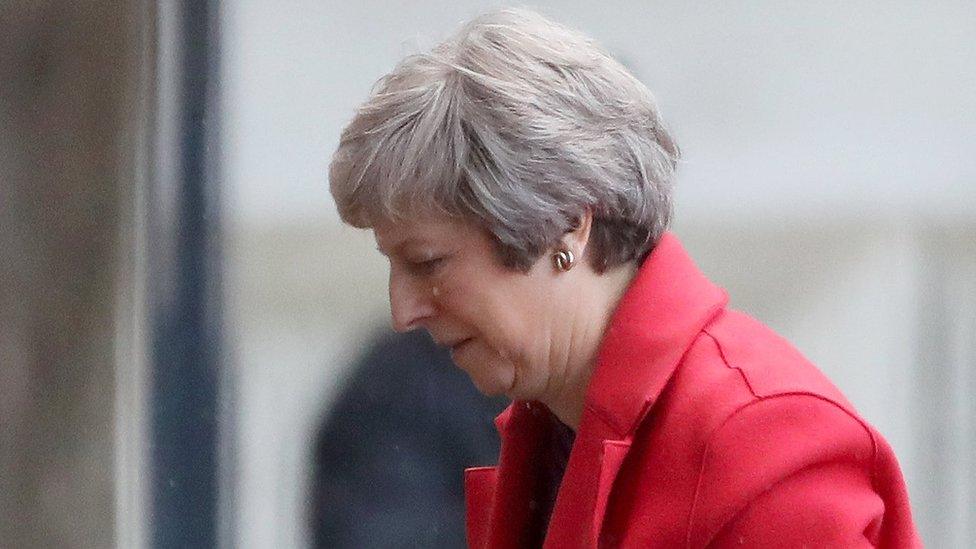
"I haven't the foggiest"
That's my stock response these days when people ask me, as they do again and again: "Where is this Brexit business going to end-up?"
In your average political, parliamentary or constitutional crisis I am usually able to hazard a reasonably educated guess.
"This time is different."
That was the title of the definitive account of the financial crisis a decade ago in a book co-authored by Carmen M Reinhart and Kenneth S Rogoff. Many observers now believe "The Crash" turned out to be the root cause not only of the election of President Donald J Trump in the US but also, here at home, of the UK voting for Brexit.
This time really is different. Politically we are in such uncharted waters that we have no reference points to guide us through the fog.
But at least I can spare my questioners that useless "stock response". Now I can recommend they read this blog post!!!
FAQs
Will there be another referendum?
It's hard to see how it could be organised in time, certainly within the prescribed schedule for Britain to leave the EU in March.
It would require Parliament to legislate for it: a challenging prospect at the best of times, even before you consider the Parliamentary arithmetic.
It would also entail an enormous amount of work for the Electoral Commission. Remember it took more than a year for the Conservatives' 2015 election manifesto commitment to an "In-Out" Referendum to be implemented.
Add to that the raw politics. In a divided nation, a referendum may only deepen those divisions.
Already we hear alarming warnings about possible threats to public order. In the apparent absence of any great shift in public opinion, Black Country and Stoke-on-Trent voters who overwhelmingly supported Brexit may feel entitled to ask the "Remoaners" to explain what exactly it is about the word "Leave" that they do not understand.
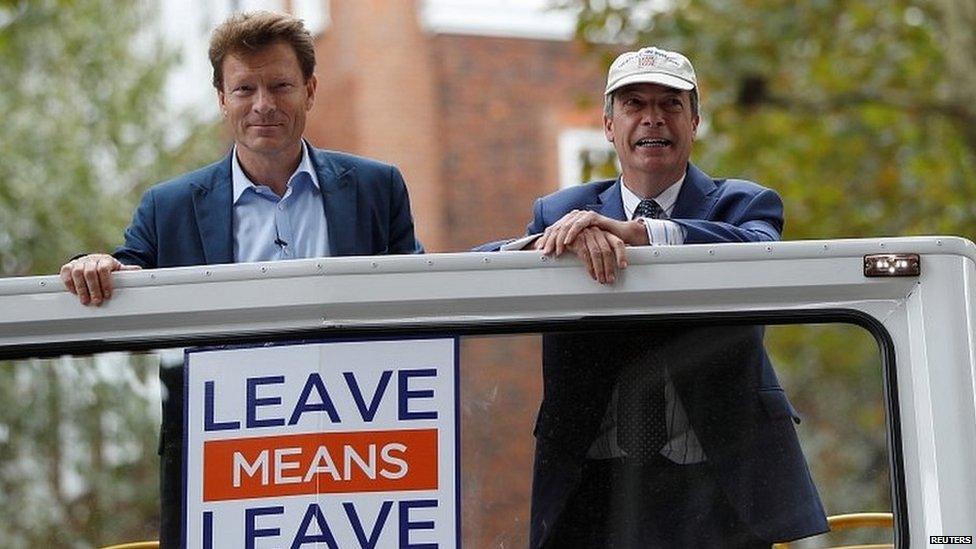
Some Leave campaigners are bracing themselves for another referendum
There are already suggestions Brexit supporters might boycott any such poll in their millions.
Back comes the response that this next vote would be on the deal itself and that "no one voted for Britain to become poorer".
One near-certainty is that a referendum campaign would deepen still further the splits within the two biggest parties.
Before he became the party leader, Jeremy Corbyn had argued against the EU for 30 years: He still says "we can't stop Brexit".
But many others in his party, including the Shadow Brexit Secretary Sir Kier Starmer, appear to see another referendum as a precursor to Britain ultimately remaining in the EU.
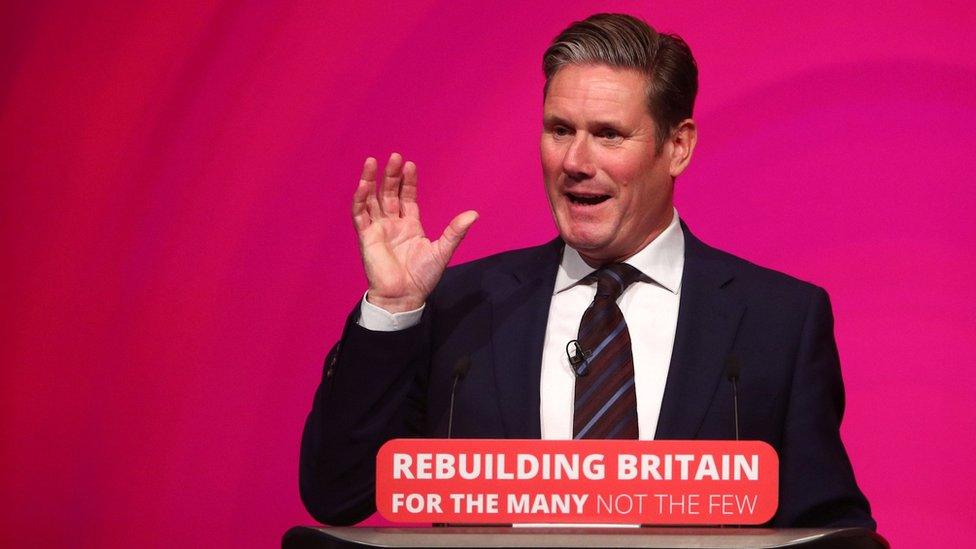
For the Conservatives, the split is of historic proportions.
How can it reconcile the tensions between, say, the Rugby MP Mark Pawsey who has set out ten reasons why he supports the draft agreement negotiated by Theresa May, and the veteran EU-baiter Sir Bill Cash, MP for Stone, who catalogued its "broken promises, failed negotiations and abject capitulation to the EU".
In any case, the likely outcome is that any such poll would merely confirm what we know: that we were a divided nation in 2016 and we still are, even in the event of a narrow majority the other way this time round.
You pays your money and you takes your choice on this one.
Will there be a "snap" general election?
Parliament is at least truly representing our divided nation by appearing hopelessly divided itself.
An early election is touted as one of the few remaining options if Parliament's indecision is final. There has even been speculation that Theresa May is secretly contemplating one herself: but remember how things turned out the last time she had that idea...

In reality, there is no such thing as a "snap" election: last year's was a six-and-a-half week epic and any election triggered between now and Christmas would probably mean polling in March. The campaign would be in full swing just when we are supposed to be concentrating on our biggest peacetime "step change" in living memory.
Despite the events of last year, the Fixed Term Parliament Act makes it very difficult to trigger an early election. It happens only if:
Two thirds of MPs vote for it (unlikely).
The government loses a Commons confidence vote and the other main party or parties are unable to form a government capable of winning another confidence vote within two weeks.
Nicola Sturgeon had what sounds like a very cordial meeting this week with Jeremy Corbyn. And the Government are in trouble with their DUP partners over the so-called "backstop" which the Northern Ireland party see as a betrayal of Mrs May's promises on the integrity of the UK.
Somewhere in all this lies what some Conservatives see as the nightmare scenario in which they sleep-walk into an unintended general election and hand Mr Corbyn the keys to Number 10.
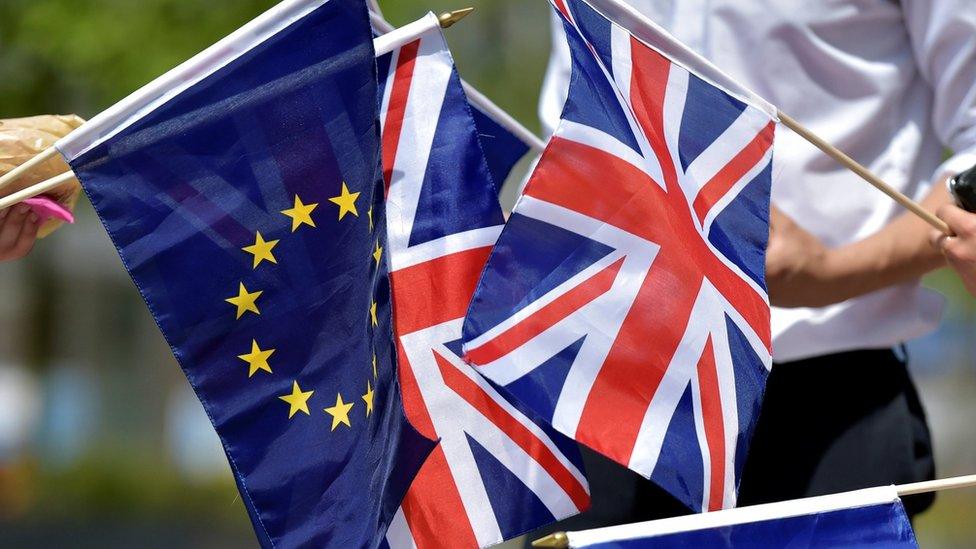
This, in turn, is one of the biggest pressures on potential Tory rebels to come back into line and vote with the government.
In the weeks leading up to the "meaningful vote" (or votes) you can be sure the government whips will be working hard to soften them up, with business leaders like Liv Garfield of Severn Trent Water coming out strongly in support of the draft proposal as the best way of avoiding crashing out with "no deal".
Privately though , even the most ambitious Labour MPs concede an early election is unlikely.
Will Theresa May survive?
At the time of writing, the signs are that the so-called "hard line Brexiteers" are struggling to muster anything like the 48 letters they need for a confidence vote.
It is seldom pointed out that even if they do, there's no guarantee this would trigger a leadership contest. It's widely thought that if there were to be such a vote, Mrs May could well win it. In that event she would be immune to any further challenges for at least 12 months.
Tellingly, Cotswold MP Sir Geoffrey Clifton-Brown urged his fellow Brexiteers last week to cool it until the outcome is known of this coming Sunday's European Union Summit: So even the Tory factions are split.....
So perhaps the key question is: "how LONG will Theresa May survive?"
After last year's general election, the vast majority of Conservative MPs do not want her to lead the party into another.
Many of them have been expecting a change of prime minister for some time, either immediately after Brexit next Spring or Summer.
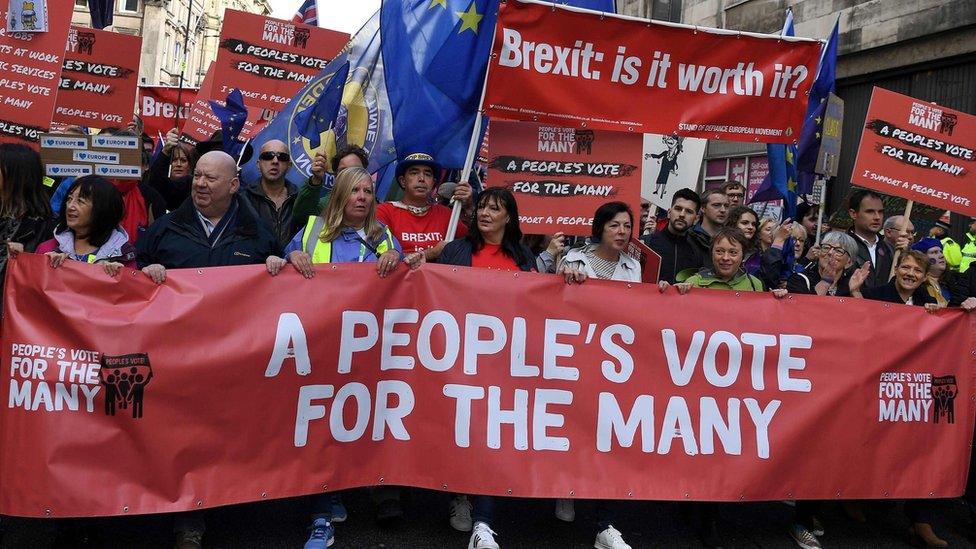
Despite her repeated assertions to me and countless others that she is "not a quitter", could Mrs May step down once Britain has formally crossed the line and formally left the EU? If she doesn't, the likelihood of a leadership challenge would certainly increase. Except, of course, if she has already seen one off either this month or next.
This may not be exactly a ringing endorsement but the signs are Mrs May could survive for the foreseeable future, partly by default of a widely acceptable alternative leader emerging.
But beware: this is only how it seems at the time of writing.
When I asked the Wyre Forest MP and former Trade Minister Mark Garnier on last week's Sunday Politics Midlands if he still expected her to be prime minister by Christmas his hesitation spoke more than words.
What's more, if I turn out to be wrong (always a genuine possibility!!) and a leadership contest were to materialise, Conservative MPs could avoid a long-drawn-out poll of party members by agreeing among themselves who should be the only candidate, even though much blood would be spilt on those Commons carpets in the process.
Will Theresa May's draft deal go through?
For all her blandishments on radio phone-ins and television interviews recently, not to mention the efforts of SOME Cabinet ministers but by no means all, the Parliamentary arithmetic is heavily stacked against it.
While the number of ministerial resignations over it is definitely at the lower end of what had been expected, it still leaves her apparently at the mercy of an unholy alliance of Brexiters and Remainers in her own party.
When the Remain-supporting former Transport Minister Jo Johnson resigned in anticipation of the draft deal, his more famous brother, the cavalier Brexiteer and former Foreign Secretary Boris Johnson commended his sibling for joining him "together in the abyss".
Theresa May's answer to this boils down to "it's my way or the highway".
She is marketing the deal as the most practical available answer to business leaders like Dr Ralf Speth of Jaguar Land Rover. He said last week the firm needed access to European markets with free movement of goods and components "like our cars need their wheels".
At the same time, she says, it delivers her promise on Brexit by securing "our borders, our money and our laws".
What is does not do, according to her critics, is leave the UK enough scope to secure unfettered access to global markets in the way envisaged by Lord Bamford, the Leave-supporting chairman of the Staffordshire digger-maker JCB.
There is no escaping the hard choices. Theresa May put it as succinctly as anyone. It's "this deal, no deal or no Brexit."
As MPs take soundings in their constituencies, the signs are that at least some of them are being urged to toe the line.
The other big question is how many Labour MPs might defy their leadership either by abstaining or even voting with the government.
Almost all the Labour contingent in our part of the country belong to what's loosely described as the "moderate" wing of the party, generally pro-European in outlook and no great fans of Jeremy Corbyn.
Would they really vote down an agreement that had been endorsed by the European Union, Angela Merkel, Emmanuel Macron and all?
They may have another motive as well: by signalling their support for the government they may calculate that Tory waverers would be emboldened to defy their whips, thereby deepening the divide in the Conservative Party.

When Tamworth's most famous MP Robert Peel repealed the Corn Laws in 1846 with the support of the Whig Opposition, things did not work out well for his party. It was so deeply split that it took many years to recover.
Faced with the choice between the devil and the deep blue sea (or worse) might growing numbers of Tory backbenchers come to conclude "better the devil we know"? Even at the risk of being accused of putting their party before their country?
In this tumultuous arena of unlikely outcomes, could Mrs May's draft deal yet turn out to be the least unlikely?
Too many questions. Too many hostages to fortune. I can feel this blog post being overtaken by events even as the metaphorical ink dries on it.
So for the latest answers to the real questions join me for this weekend's Sunday Politics Midlands, which will be on-air just just as that European Summit is opening in Brussels.
With me in the studio will be James Morris, Conservative MP for Halesowen and Rowley Regis, a Vice Chairman of the Conservative Party; Eleanor Smith, the Labour MP for Wolverhampton South West, who entered Parliament in that General Election last year. And for an expert perspective we'll also by joined by Professor Alex de Ruyter, the Director of the Centre for Brexit Studies at Birmingham City University.
And I hope you will join us too, at 11.00 on BBC One West Midlands, Sunday 25 November 2018.